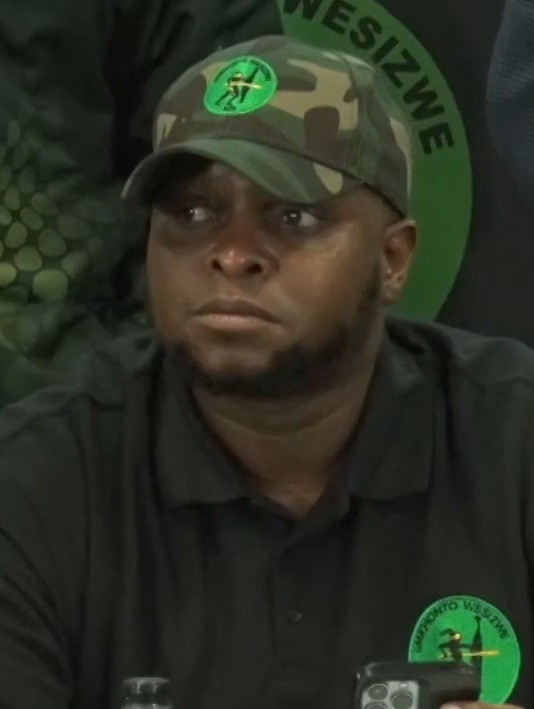
Floyd Shivambu
Floyd Shivambu is a prominent South African politician and the secretary general of the uMkhonto weSizwe party, formerly serving as the deputy president of the Economic Freedom Fighters. He has been at the center of controversy within the party, facing internal criticism from members, including Duduzile Zuma-Sambudla, who recently called for his removal from leadership.
Born on Apr 06, 1982 (43 years old)
Global Media Ratings
Countries Mentioned
| Country | Mentions | Sentiment | Dominance | + Persistence | x Population | = Reach | x GDP (millions) | = Power |
|---|---|---|---|---|---|---|---|---|
| South Africa | 1 | 5.00 | 0.57% | +0% | 59,308,690 | 338,907 | $350,000 | 2,000$ |
| Totals | 1 | 59,308,690 | 338,907 | $350,000 | 2,000$ |
Interactive World Map
Each country's color is based on "Mentions" from the table above.
Recent Mentions
 South Africa:
Floyd Shivambu has previously held the secretary general role in the MK party.
5
South Africa:
Floyd Shivambu has previously held the secretary general role in the MK party.
5
 South Africa:
Floyd Shivambu was the first to flag the looting of MKP funds and raised concerns about the party's finances.
5
South Africa:
Floyd Shivambu was the first to flag the looting of MKP funds and raised concerns about the party's finances.
5
 South Africa:
The party’s national disciplinary committee prepared a report and sent it to Floyd Shivambu.
5
South Africa:
The party’s national disciplinary committee prepared a report and sent it to Floyd Shivambu.
5
 South Africa:
Floyd Shivambu is the president of the Afrika Mayibuye Movement who fired Nolubabalo Mcinga over unsanctioned meetings.
6
South Africa:
Floyd Shivambu is the president of the Afrika Mayibuye Movement who fired Nolubabalo Mcinga over unsanctioned meetings.
6
 South Africa:
Floyd Shivambu has announced the Afrika Mayibuye Movement as a new political party and himself as its president.
8
South Africa:
Floyd Shivambu has announced the Afrika Mayibuye Movement as a new political party and himself as its president.
8
 South Africa:
Floyd Shivambu was punished by the MK party for consulting the self-proclaimed prophet Shepherd Bushiri.
5
South Africa:
Floyd Shivambu was punished by the MK party for consulting the self-proclaimed prophet Shepherd Bushiri.
5
 South Africa:
Floyd Shivambu’s Mayibuye iAfrika gains momentum as MK leaders defect.
7
South Africa:
Floyd Shivambu’s Mayibuye iAfrika gains momentum as MK leaders defect.
7
 South Africa:
Floyd Shivambu’s Mayibuye iAfrica party and Mmusi Maimane’s Build One South Africa, competition would be stiff.
5
South Africa:
Floyd Shivambu’s Mayibuye iAfrica party and Mmusi Maimane’s Build One South Africa, competition would be stiff.
5
 South Africa:
Floyd Shivambu was replaced as secretary general and had his membership terminated.
4
South Africa:
Floyd Shivambu was replaced as secretary general and had his membership terminated.
4
 South Africa:
Floyd Shivambu is a former secretary general who has accused Ndhlela of taking drugs and has been involved in the factional disputes.
4
South Africa:
Floyd Shivambu is a former secretary general who has accused Ndhlela of taking drugs and has been involved in the factional disputes.
4